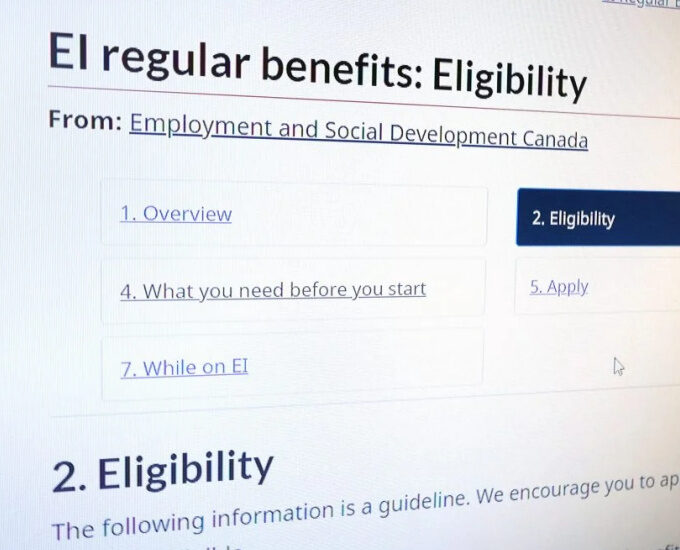
KJIPUKTUK (Halifax) – The changes announced last week to Employment Insurance (EI) will help thousands of workers who face many barriers with Employment Insurance (EI). On face value, it looks like these changes may be a relief for some workers in the short term.
The three new temporary benefits seem okay, but they offer less. According to the Federal Minister, about three million people are expected to file for EI with many being transitioned from the Canada Emergency Response Benefit (CERB) to EI automatically.
For workers transitioning it must be a seamless proposition for those who have not regained employment. Workers who do not qualify can apply for the three new benefits which are lower than the $500 they received weekly on CERB. Losing $400 a month will be catastrophic for those with a family to feed and house. It will also strike a blow to the economy.
The new Canada Recovery Caregiving and Sickness Benefit will provide badly-needed support for anyone who has to stay home because they’re ill, or because school or daycare is closed. These benefits are especially good news for people with precarious/gig employment, who have been disproportionately impacted by pandemic-related job losses. Caregiving and sickness benefits are for people who are supporting dependents or unable to work due to sickness or self-isolation. Eligible applicants will receive $500 per week – one more reason we need paid sick days on top of such benefits.
This change offers two one-week EI Benefit periods to help the many workers who have no paid sick leave comply with public health guidance around self-isolation for 14 days in case of COVID symptoms. However, this proposal falls well short of a comprehensive paid sick leave plan. The Canada Recovery Sickness Benefit doesn’t replace full income for most workers, instead of paying a flat $500 per week.
No worker should ever have to make the choice between staying home when they’re sick and paying the bills. Let’s be clear; these changes are no substitute for permanent paid sick leave that all workers need. The new benefit doesn’t offer support for workers who only miss a day or two of work and appears to apply only to COVID-19-related illnesses and symptoms. Unlike paid sick leave, the new benefit places the onus on workers to apply, and it’s unclear how long they’ll need to wait until they receive their pay or if their job is protected while away from work. The plan covers the next year of the pandemic and isn’t permanent. It still leaves too many workers having to decide whether they can afford to stay home and follow public health guidance when they’re sick.
We are happy that other program changes include a one-time reduction in qualifying hours that will improve access, and a new benefits floor has been established at $400/week and the establishment of a $400 weekly benefit for gig economy workers for up to 26 weeks.
Self-employed workers, including gig workers, who are not eligible for EI, can apply for and receive this. However, we are disappointed to see the benefit for workers will pay significantly less to people who are unemployed through no fault of their own and we are calling for this inequity to be corrected immediately.
The Federation of Labour, with many other organizations, have been on the front lines advocating for EI reform for many years and lobbied to create the Canada Emergency Response Benefit (CERB). We will continue this work to make life better for workers.
Danny Cavanagh is president of the Nova Scotia Federation of Labour
With a special thanks to our generous donors who make publication of the Nova Scotia Advocate possible.
Subscribe to the Nova Scotia Advocate weekly digest and never miss an article again. It’s free!



